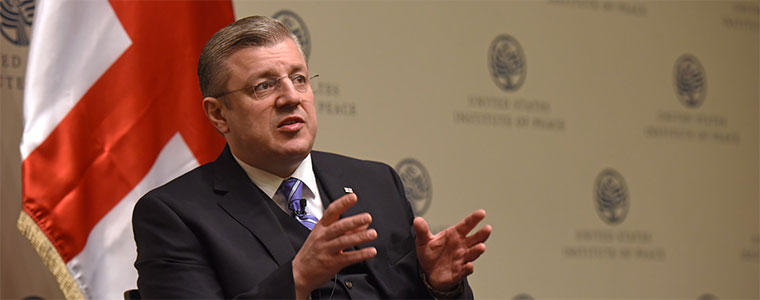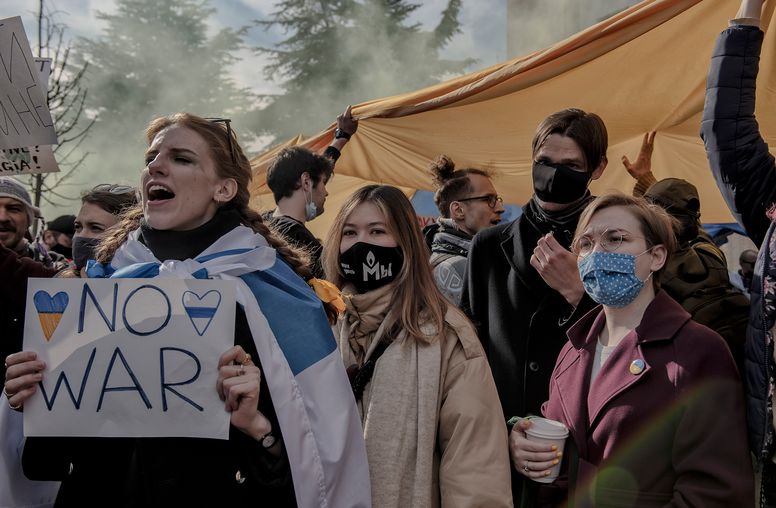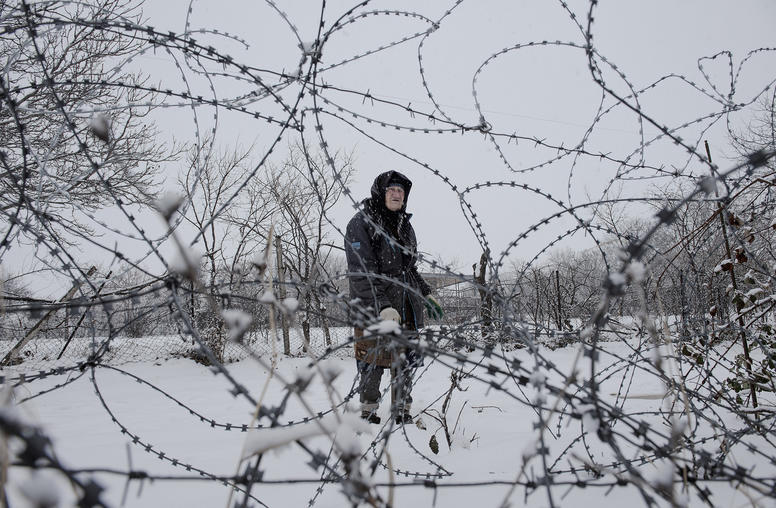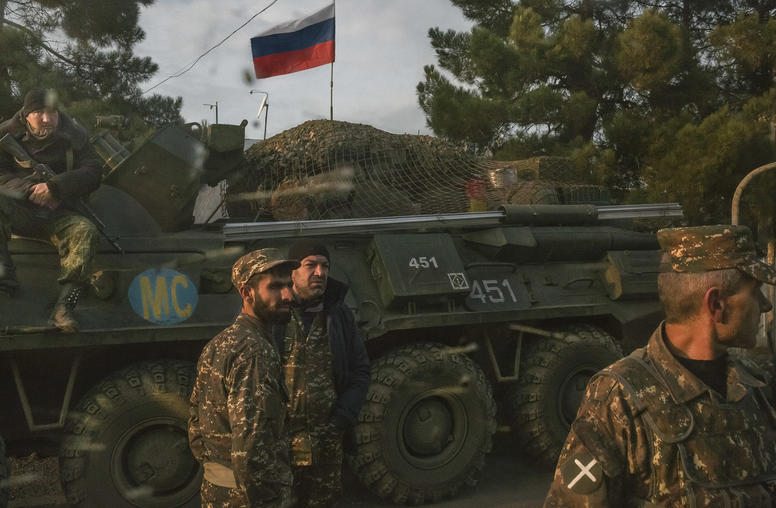Georgian-U.S. Bilateral Ties: A Pillar for Security
Prime Minister Kvirikashvili Addresses Sources of Regional Peace and Prosperity
Read the Event CoverageGeorgian Prime Minister Giorgi Kvirikashvili spoke at the U.S. Institute of Peace on April 26 on relations with the U.S. and their importance as an anchor for regional progress and prosperity. The Georgian leader addressed his country’s efforts toward economic and democratic progress and peace as vital sources of stability in an increasingly volatile region.

Kvirikashvili became Prime Minister in December 2015, after winning a vote of confidence by the Georgian Parliament. He has prioritized economic growth and development and the establishment of strong relations between the government and citizens, including in the occupied regions of Abkhazia and South Ossetia.
In May 2016, Georgia celebrated 25 years as an independent state. Its engagement with the global community includes strong ties to NATO and the European Union and a pragmatic approach to relations with Russia. The Prime Minister’s speech at USIP was his only public address during his first trip to Washington since taking office. The visit includes meetings with administration officials that will focus on further strengthening economic and security cooperation. Continue the conversation on Twitter with #GeorgiaUSIP.
Speakers
Prime Minister of Georgia Giorgi Kvirikashvili
Senator Chris Murphy, Introductory Remarks
United States Senate, CT(D)
Ambassador (ret.) William B. Taylor, Moderator
Executive Vice President, U.S. Institute of Peace
Nancy Lindborg, Welcoming Remarks
President, U.S. Institute of Peace



